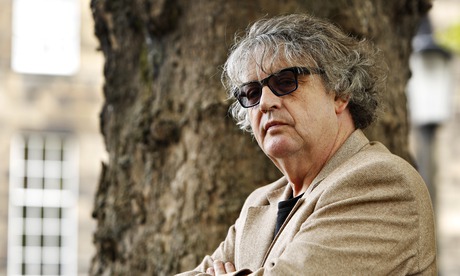
In 1986, fresh from Africa, I arrived at university with a sheaf of poems. Nothing unusual there, except in that year Paul Muldoon was the Judith E Wilson fellow at Cambridge, and by good fortune he was in residence at my own college, Fitzwilliam. There, once a week, at about six in the evening, he convened a writing group. It wasn’t a creative writing workshop, but something more fluid. People would read out poems or short pieces of prose. Once, I remember, Lee Hall, later the writer of Billy Elliot and The Pitmen Painters, brought along his guitar and sang a song. The group was a mixture of students and Cambridge residents, of varying ages. We all smoked, of course, and there was a fair bit of covert flirting.
Muldoon’s responses to the work were elliptical, like his own writing, which we were beginning to discover in collections such as Quoof (1983) and a slim Selected Poems (1986). Once he described one of my poems – I think it was about cycling – as “very regular”. It took me some time to realise he probably wasn’t just talking about the metre.
It was Muldoon’s next book, published just after he left Cambridge for the University of East Anglia and then Princeton, which had a big effect on me. From Meeting the British (1987) I learned many things that helped my own writing when I began to publish novels, a decade or so later.
The title poem dramatises the encounter between a group of native Americans and British colonial soldiers during the 1760s: “They gave us six fishhooks / and two blankets embroidered with smallpox.” Half-Irish, half-English, brought up in Africa, I began, after reading this, to see that I myself had emerged from a quasi-colonial situation: the last, half-embarrassed splutter of empire, which despite independence in the late 1960s continued coughing on for at least 15 years, determining political and social norms in many of the African countries in which I had lived.
I realised that I had been involved in a movement, a process from origin to destination, something spectral. I also came to see identity like this, understanding the distant past (my Kerry grandmother reminiscing about hiding under the bed when the Black and Tans raided the farm) and the near past (watching police attack rioting crowds in Nigeria) in a different way. I suppose I woke up from the idyll of politically neutral insulation that is, to this day, the bane of expatriate life.
This realisation coincided with a boom in postcolonial studies in an academic sense. People such as Homi Bhabha were beginning to theorise key concepts such as hybridity, boundary areas and ambivalence. And it seemed to me that Muldoon was putting these ideas into practice poetically, with his shape-shifting rabbits and badgers, lobsters and dolphins – even that “hacienda’s frump / of pampas-grass, / a pair of cryptic / eagles guarding its front door”.
Part of the ambivalence of Muldoon’s own poems resides in modal verbs and associated speech acts, which together somehow clear a space between what is certain or not (“I must have been dozing in the tub / when the telephone / rang …”). These formulations – the longer one occupies them as a reader – appear to open up political possibilities; or rather, the possibilities of new politics. Muldoon’s forms, his metaphors, even his famous half-rhymes, now seem proleptic, throwing themselves forward to the realities of the peace process that would begin to emerge materially in Northern Ireland in the early 90s, like the forked twig “astounding itself as a catapult” in another poem in the book.
Yet there is never, in Meeting the British, any sense of settling into a particular political narrative. The associative power of language is constantly brought in to show us how fixed ideas are subject to slippage, like the length of chain from which the poet Gérard de Nerval hangs himself in one poem, which makes the speaker of the poem “think of something else, then something else again”. All through the book you can see Muldoon giving himself over to the play of language like that, and I suppose that one of the other things that changed me, on reading it, was realising that even in fictional prose, which tends to be more subject to external structures (the drama, the plot, the situation), a writer needs to be open to that.
That said, the collection contained Muldoon’s most structured piece of dramatic writing to date: 7, Middagh Street realises the voices of the illustrious occupants of a house in Brooklyn Heights in the early 1940s, including WH Auden, Chester Kallman, Louis MacNeice, Carson McCullers, Salvador Dali, Benjamin Britten and Gypsy Rose Lee. As a whole, this long poem is a consideration of the relation between politics and art. I suppose what I learned from 7, Middagh Street was that, in the right circumstances, it’s OK to voice actual historical figures, as I did with Idi Amin in The Last King of Scotland, and that the brute material of history and politics can sometimes be corralled in art – even if there is always a cost, a cargo, some kind of residue of actual lived experience.
That’s always there in Muldoon, the feeling inscribed in the form. So it’s fitting that none of the so-called literary lessons of Meeting the British were the really important ones. The poems in it about love and death spoke to me most strongly, in particular the elegies for Muldoon’s father, to whom the book is dedicated. Everyone has a father story, of course, and it is a testament to Muldoon’s universalism that when he sees his father in a badger, we can see ours in his.




No comments:
Post a Comment